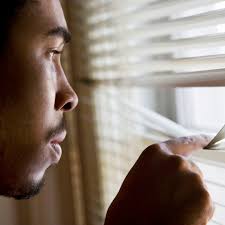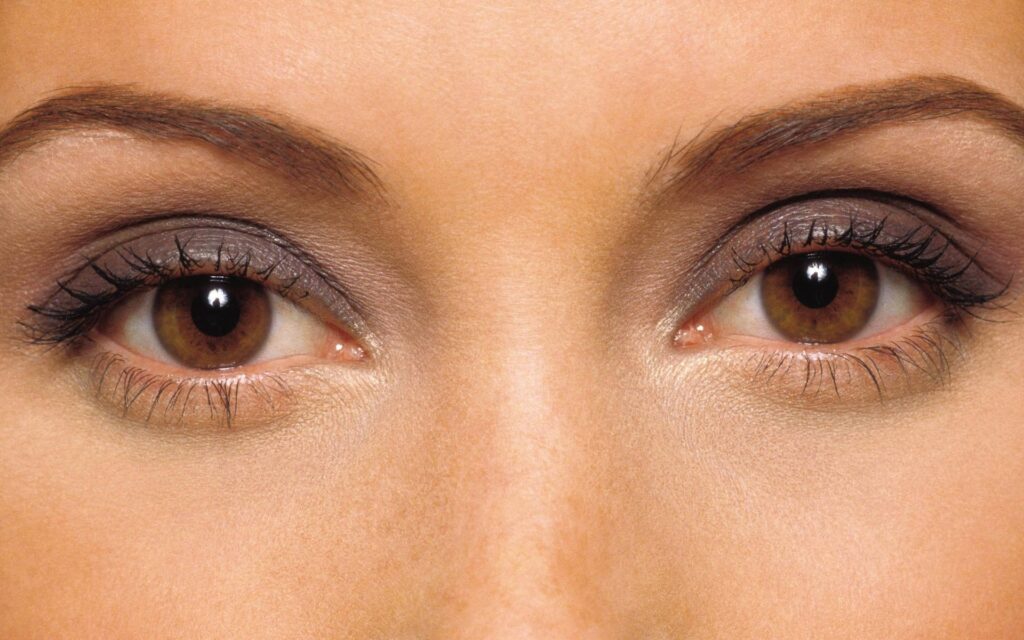Do you ever feel like you can’t stop looking at something? That’s the hallmark of obsessive-compulsive disorder, or OCD. People with OCD often have intrusive thoughts that compel them to stare at an object or person for an extended period of time. This can be incredibly disruptive to their lives and cause a great deal of anxiety. In this blog post, we will discuss the symptoms and treatment options for OCD staring.
Contents
What Is OCD Staring?

OCD staring is a type of obsessive-compulsive disorder characterized by intrusive thoughts that compel the individual to stare at an object or person for an extended period of time. This can be extremely disruptive to daily life and cause immense anxiety. Individuals with OCD often feel like they can’t control their thoughts or behaviors, which can lead to a great deal of distress.
There are a number of different objects that people with OCD may stare at compulsively. Some common examples include:
- Light switches
- Fans
- Television screens
- Refrigerators
- People’s faces
- Door knobs
- Mirrors
- Windows
The compulsions associated with OCD staring can vary greatly from person to person. Some people may only stare at an object for a few seconds, while others may stare at it for minutes or even hours. In severe cases, the compulsion to stare can be so strong that it interferes with work, school, or other important activities.
OCD staring creates a lot of distraction for people who need their focus on important task because of strong urges or compulsions.
OCD Staring And Other Illnesses
Some other mental illnesses that can occur alongside OCD staring are:
- Anxiety disorders: People with OCD often suffer from anxiety disorders, such as generalized anxiety disorder or panic disorder. This can make it difficult to cope with the intrusive thoughts and compulsions associated with OCD.
- Depression: Depression is common in individuals with OCD. This may be due to the negative impact that OCD has on one’s life.
- Eating disorders: People with OCD may also suffer from eating disorders, such as anorexia nervosa or bulimia nervosa. This is often due to the fact that people with OCD are constantly worrying about their weight or body image.
- Body dysmorphia: People with OCD may also suffer from body dysmorphic disorder, which is a condition characterized by an obsessive preoccupation with one’s appearance. This can be extremely distressing for individuals with OCD.
OCD has been observed to occur alongside other illnesses. Although nothing can be proved without proper research.
Types Of OCD Staring
There are two types of OCD staring:
- Primary OCD staring is when the act of staring is the main focus of the disorder. Individuals with primary OCD staring often feel a great deal of anxiety about their appearance and worry that they will be perceived as creepy or strange if they make eye contact with someone.
- Secondary OCD staring is when the act of staring is a secondary symptom of another disorder, such as schizophrenia or body dysmorphic disorder. Individuals with secondary OCD staring may fixate on a particular body part or object because they are concerned about its appearance.
Both the act of staring and the object of the stare can vary significantly from person to person. Degree of severity and frequency of episodes can also vary.
Symptoms

The most common symptom of OCD staring is the irresistible urge to stare at an object or person for an extended period of time. This can be extremely disruptive to daily life and cause immense anxiety. Other symptoms may include:
- Feelings of fear or anxiety that are triggered by certain objects or situations
- Avoidance of trigger objects or situations
- Compulsively checking on things or people
- Excessive hand washing, cleaning, or grooming
- Repeating certain words, phrases, or actions over and over again
- Difficulty concentrating or focusing on tasks
- Fixating on objects or people for prolonged periods of time
- Intrusive thoughts about staring
If you or anybody you know presents these symptoms, a visit to doctor is advised.
Causes

There is no known cause of OCD staring, but some probable factors that could have contributed are:
- Genetic: OCD may be partially explained by genetics. If you have a family member with OCD, you may be more likely to develop the disorder yourself.
- Environmental: Exposure to certain environmental factors may contribute to the development of OCD. Society and early childhood home plays a significant role in development of OCD staring.
- Brain chemistry: Abnormalities or imbalance in certain brain chemicals may play a role in OCD development.
- Stressful life events: Traumatic or stressful life events which can lead to feelings of paranoia and anxiety. Hence it can trigger OCD symptoms.
These factors have been found to have most contribution in development of OCD staring disorder although more research is required to know accurately about the origin of OCD staring.
Effects

OCD staring can have a significant effect on an individual’s life. It can disrupt your routine in many ways:
- You may miss work or school due to your OCD symptoms.
- Your relationships may suffer as a result of your disorder.
- You may avoid social situations for fear of triggering your symptoms.
- Your quality of life may be significantly diminished.
- You may feel isolated and alone.
- Your self-esteem and confidence may be affected
OCD staring can be a very debilitating condition, but there is hope. With proper treatment, many people with OCD are able to live full and productive lives. If you or somebody you know is struggling with OCD staring, please seek professional help.
Treatments

There are a number of treatment options available for OCD staring. you can make your condition more manageable whether by helping yourself through a change in lifestyle or by asking for professional health.
Self Help
There are a number of things you can do to help manage your OCD symptoms:
- Identify your triggers: What situations or activities make you feel like people are staring at you? Avoiding these situations can help reduce your anxiety.
- Challenge your thoughts: Are there other explanations for why people might be looking at you? It is likely that they are not actually staring at you because of something you have done wrong.
- Focus on your breathing: Taking some deep breaths can help to calm you down and reduce anxiety.
- Talk to someone: Talking to a trusted friend or family member about your experiences can help you feel less alone and can also provide support.
Preparing to talk to a mental health professional could also be beneficial. some ways to prepare are:
- Making a list of your symptoms.
- Tracking your symptoms over time.
- Identifying your triggers.
- Gathering information about OCD and its treatment.
- Asking questions about the therapist’s experience with treating OCD.
- Setting realistic goals for therapy.
OCD can be a debilitating disorder, but there are treatments available that can help you manage your symptoms and live a fulfilling life.
Professional Help
If you think you might have OCD staring, the best thing to do is to talk to your doctor. He or she can help you determine whether your symptoms are due to OCD or another condition. If it is determined that you have OCD, there are a number of treatment options available that can help relieve your symptoms:
- Medication: Medications such as antidepressants, anti-anxiety medications, and antipsychotics can be helpful in reducing OCD symptoms. Selective serotonin reuptake inhibitors (SSRIs) are a type of antidepressant medication that is often prescribed for OCD. SSRIs work by increasing levels of serotonin in the brain, which can help to reduce OCD symptoms.
- Cognitive behavioral therapy (CBT): It is an effective treatment for OCD staring. CBT teaches you how to recognize and change the thoughts and behaviors that are contributing to your OCD symptoms.
- Exposure and response prevention therapy: This is another effective treatment for OCD staring. ERP involves gradually exposing yourself to the things that trigger your OCD symptoms and learning to resist the urge to engage in compulsive behaviors.
Asking for help from a professional to manage symptoms could help you improve your quality of life. Do consider talking to your doctor to get best available treatment.
Conclusion
In conclusion, OCD staring is a real problem. It can lead to a great deal of distress that can interfere with a person’s life and health. OCD staring should not be taken lightly it is a real problem and deserves our attention just like other mental and physical illnesses. There are treatments available that can help people manage their OCD symptoms and live fulfilling lives. If you think you or somebody you know might have OCD staring, please seek professional help.
If you are struggling with OCD, know that you are not alone. There are many resources available to help you cope with this condition. Reach out to Therapy Mantra for help getting started on the road to recovery. We have a team of mental health professionals who specialize in treating OCD. Our specialists can help you develop a treatment plan that meets your specific needs. Contact us today to book an online therapy or download our free OCD treatment app on Android or iOS for more information.


